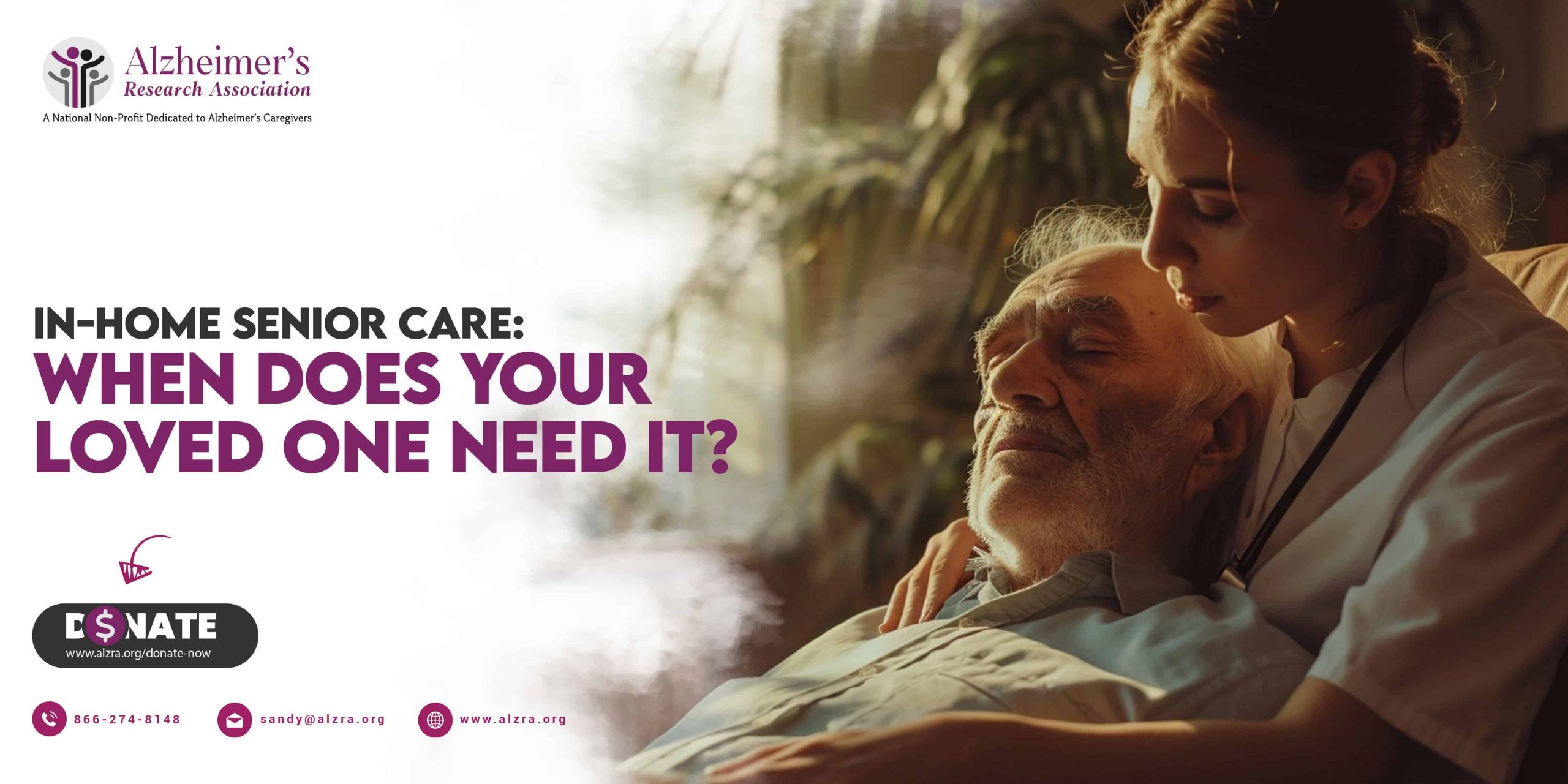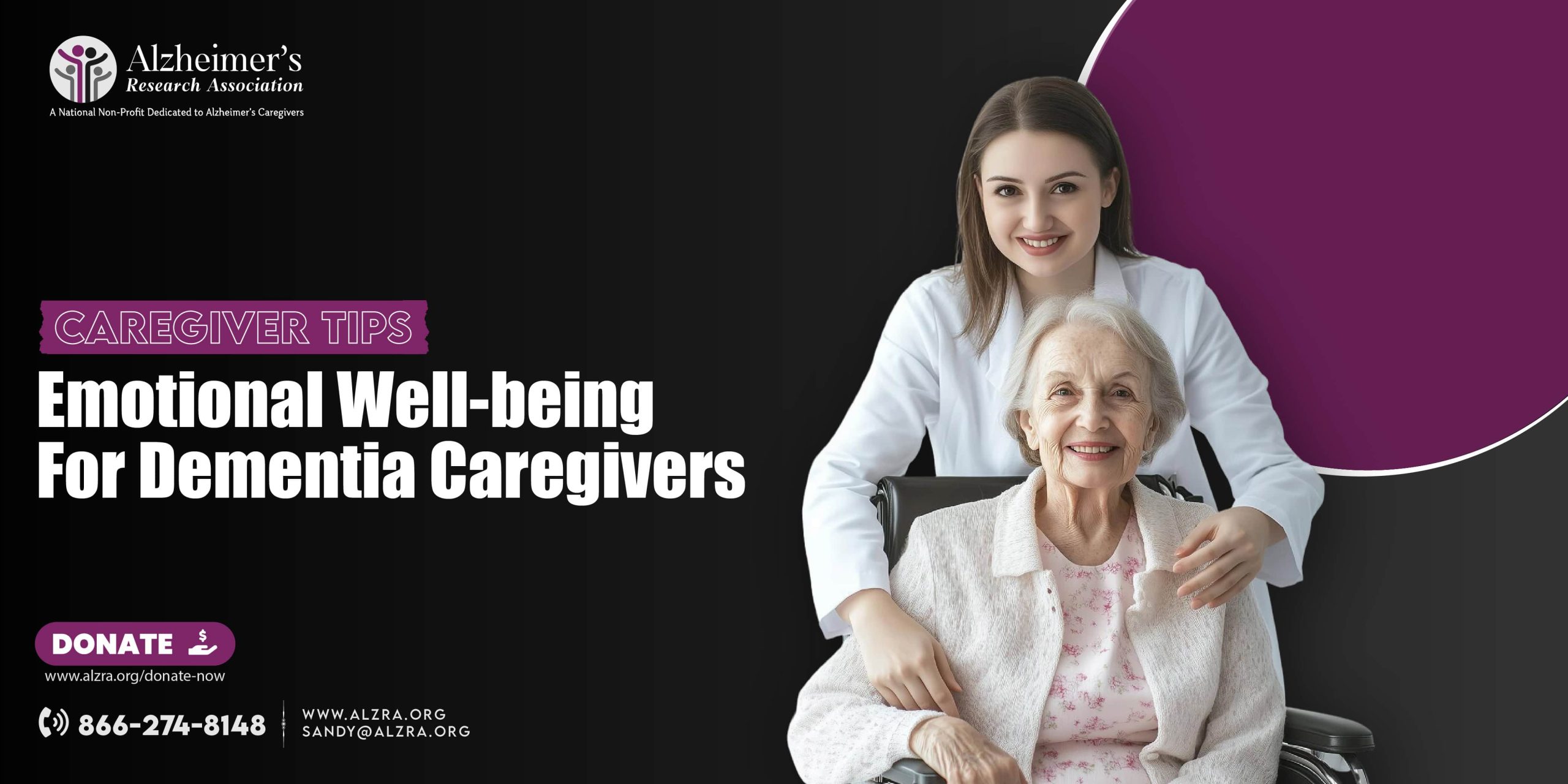Taking on the role of caregiver for a parent or loved one is a noble but often challenging endeavor. Most seniors want to stay independent, but as daily tasks become harder or health needs increase, subtle signs begin to appear: missed appointments, difficulty keeping up with household chores, or growing concerns about safety. These moments often lead to an important question: Is it time for in-home senior care?
For families of seniors living with Alzheimer’s or dementia, the need for support can emerge even earlier and more urgently. Memory loss, confusion, and unpredictable behavioral changes can create stressful and sometimes unsafe situations both for the senior and the family caregiver.
Many caregivers try to shoulder these responsibilities alone, juggling work, household duties, and 24/7 monitoring, only to find themselves exhausted and overwhelmed. In-home senior care can bring relief, safety, and peace of mind, providing specialized support without uprooting your loved one from the comfort of familiar surroundings.
What is In-Home Senior Care, and Why is it Important?
Being a caregiver comes with its own challenges. There are moments when you cannot assist, and some issues require medical attention or a trained professional. You will encounter a variety of caregiving difficulties. However, you don’t have to face them alone. It is crucial to recognize your limitations and seek the assistance of in-home care experts when necessary.
In-home senior care services provide personalized support to help older adults stay safe and comfortable at home, while also alleviating the burden on family caregivers. These services can range from basic assistance, such as help with bathing, dressing, meal preparation, housekeeping, and medication reminders, to more specialized care for chronic conditions, mobility challenges, or memory-related illnesses like Alzheimer’s and dementia.
Care is flexible, ranging from a few hours a week to 24/7 support, allowing families to choose the level of help that best meets their needs. The goal is to promote independence, enhance quality of life, and offer peace of mind for both seniors and their families.
Signs Your Loved One Needs In-Home Senior Care
Here are some signs that indicate the need for in-home senior care.
Difficulty with Daily Activities
When elders begin to struggle with daily activities such as bathing, grooming, clothing, preparing meals, or managing medications, family caregivers are frequently the first to step in. What begins as occasional assistance can soon escalate into hours of daily responsibilities. This is particularly challenging if the caregiver is juggling work or their own family obligations. In-home care can help ensure that these crucial tasks are completed safely and consistently, lowering stress and minimizing caregiver overload.
Mobility Problems or Increased Risk of Falls
Family caregivers may find it challenging or even risky to provide the physical support needed for mobility concerns. Helping a loved one up the stairs, into bed, or in and out of the shower can cause caregiver injuries and stress. Seniors who struggle with balance or are losing strength are also more likely to fall, which can lead to long-term difficulties or hospital stays. In-home caregivers are trained to employ safe procedures and mobility aids, thereby protecting both the elder and the caregiver.
Cognitive Decline or Memory-Related Conditions
Alzheimer’s or dementia-related cognitive decline places additional stress on family caregivers. Family caregivers are frequently unable to work, sleep effectively, or find personal time due to their loved one’s behavior and personality changes, such as wandering, agitation, repetitive questioning, and confusion, all of which can necessitate ongoing supervision. In-home caregivers trained in memory care can create structured routines, employ redirection techniques, and ensure safety. Their presence allows family caregivers to focus on emotional connections rather than constant monitoring.
Decline in Hygiene or Home Cleanliness
As seniors lose strength, mobility, and cognitive ability, maintaining personal hygiene and domestic cleanliness becomes increasingly challenging. Family caregivers often assist with cleaning, bathing, and laundry, which can become overwhelming when combined with their caregiving duties and daily activities. In-home care ensures consistent hygiene and home maintenance, making seniors feel more dignified while lowering the caregiver’s physical workload.
Emotional or Social Withdrawal
Isolation affects both elders and the family members who care for them. When an older person withdraws socially – losing interest in activities, avoiding outings, or becoming irritated or depressed – family caregivers may feel compelled to provide continual emotional support. This can be taxing, especially when combined with additional caring responsibilities. In-home caregivers provide companionship, conversation, and engagement, helping seniors combat loneliness while allowing caregivers to recharge emotionally.
Increasing Health or Medical Needs
Chronic diseases such as heart disease, diabetes, arthritis, or mobility challenges may necessitate complex routines, regular monitoring, and more hands-on care. Family caregivers who lack medical knowledge may experience anxiety or fear of making a mistake. In-home care professionals can assist with symptom management, identifying changes in condition, coordinating appointments, and ensuring care plans are followed, giving families peace of mind and freeing them of medical obligations they may not feel able to undertake.
Family Caregiver Burnout
Caregiver burnout is often one of the most apparent indications that additional support is required. When caring obligations increase, family caregivers may become emotionally fatigued, physically exhausted, or unable to manage their own lives. Irritability, guilt, sleep problems, resentment, or feelings of overload are all warning signs. In-home care does not replace the caregiver. Instead, it provides respite, allowing them to relax, recharge, and continue caring for their loved one in a healthier, more sustainable way.
Final Thoughts
Recognizing when your loved one needs in-home senior care isn’t always easy, especially for family caregivers who feel obligated to handle everything themselves. But support does not mean stepping back; it means ensuring your loved one receives the safest, highest-quality care possible while preserving your own health and your relationship with them. In-home care can help restore balance, confidence, and peace of mind for the whole family.
Donate Today to Support Alzheimer’s Family Caregivers!
Caregiving is a demanding task that often leaves the caregivers physically, emotionally, and financially unstable. The least we can do is to try to alleviate some of their burden by supporting them via donations.
November is National Family Caregivers Month! Let’s honor the dedication and sacrifices of the Alzheimer’s family caregivers who devote their lives and resources to caring for their loved ones! Don’t forget to support them, which you can do by acknowledging their hard work and donating as much as possible: https://www.alzra.org/donate-now/
References
- Yauger, M. In-Home Senior Care: Signs Your Loved One Needs It. Health. https://www.health.com/family/in-home-senior-care. Updated: 3rd October, 2025. Accessed: 18th November, 2025.
- Recognizing When Your Loved One Needs In-Home Senior Care. Home Instead. https://www.homeinstead.com/home-care/usa/tx/midland/741/news-and-media/recognizing-when-your-loved-one-needs-in-home-senior-care/. Published Online: 24th March, 2025. Accessed: 18th November, 2025.
- Ehlert, R. Top 10 Signs Your Loved One Needs Home Care. Caring Senior Service. https://caringseniorservice.com/blog/top-10-signs-your-loved-one-needs-home-care/. Published Online: 23rd September, 2025. Accessed: 18th November, 2025.


